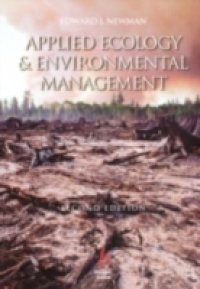This book explains ways that ecological science can be applied to solving some of the most crucial problems facing our world today. A major theme is how resources can be effectively managed and exploited in as near a sustainable manner as possible. The author draws together, in a single volume, major topics in environmental and resource management that have traditionally been dispersed among several different books. Applied Ecology starts with an analysis of our planet's basic natural resources - energy, water and soil; it moves on to the management of biological resources - fish, grazing lands and forests, and then to pest control and pollution. Finally, the book tackles conservation and management of wild species and the restoration of ecological communities. The second edition of this text has been radically redesigned and rewritten. Each chapter starts with a list of questions, setting out the various fundamental problems to be considered. Interwoven with these practical problems is a clear explanation of the underlying basic science - ecology - studied at scales ranging from global, landscape and ecosystem, down to the population and individual (and even their physiology and genetics). The science is illustrated by examples from every major geographic area of the world. This book is aimed primarily at undergraduate students taking courses in applied ecology, environmental science, environmental management and natural resources management. The author has extensive experience as a university teacher. Like his lectures, this book is scientifically rigorous yet clear and easy to understand. Draws together major topics in environmental and resource management, usually dispersed over many separate books. Questions, summaries and clearly structured chapters enhance usability. Emphasis on clarity and accessibility. Based on a proven and successful course.

